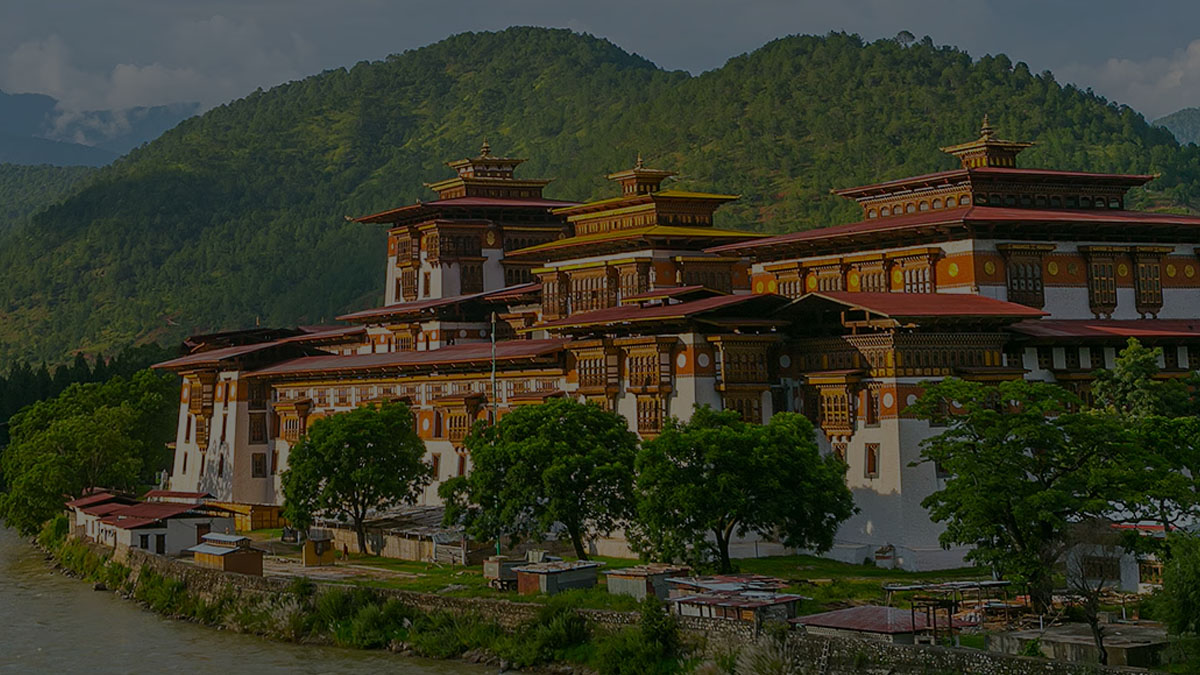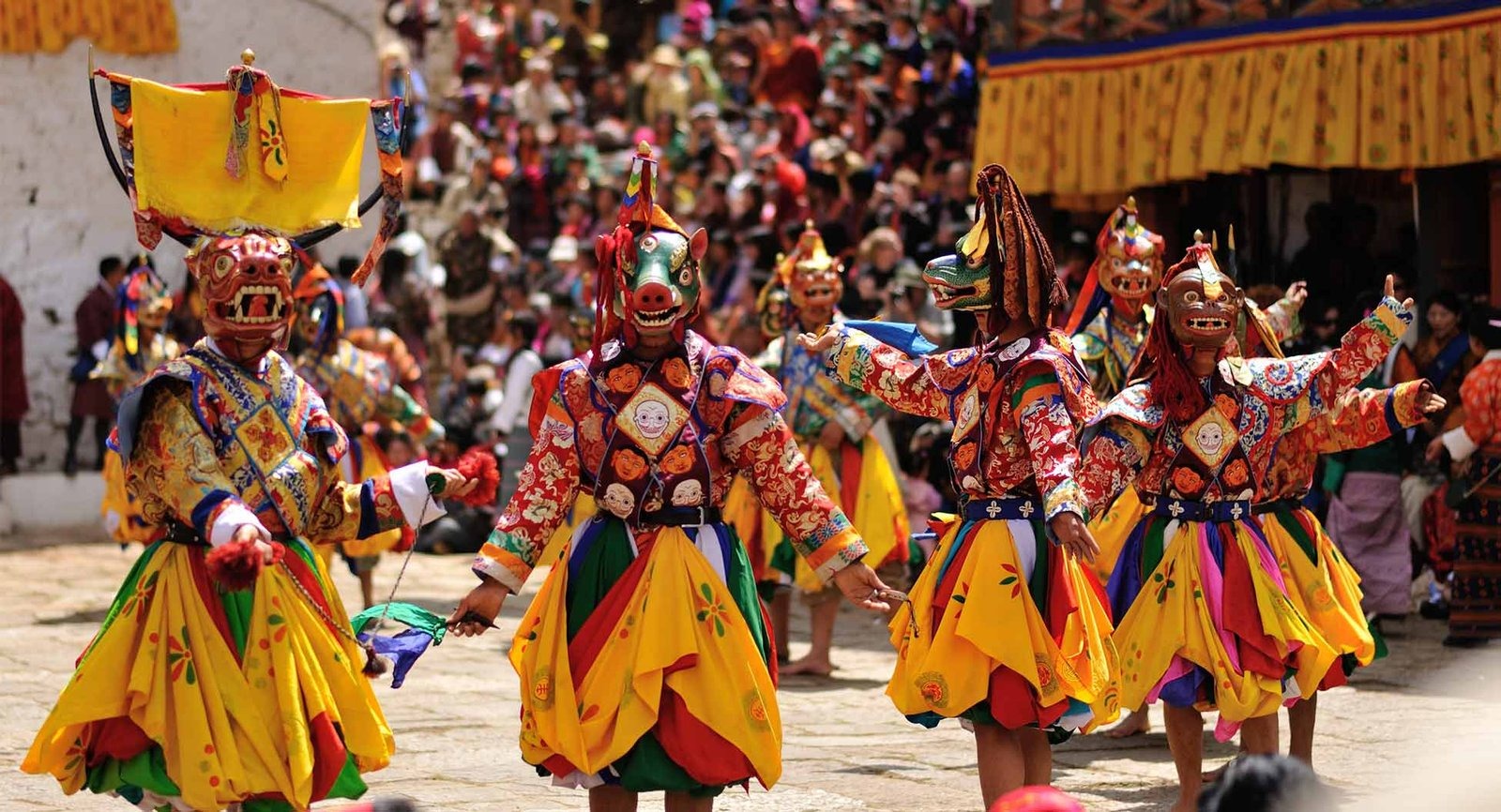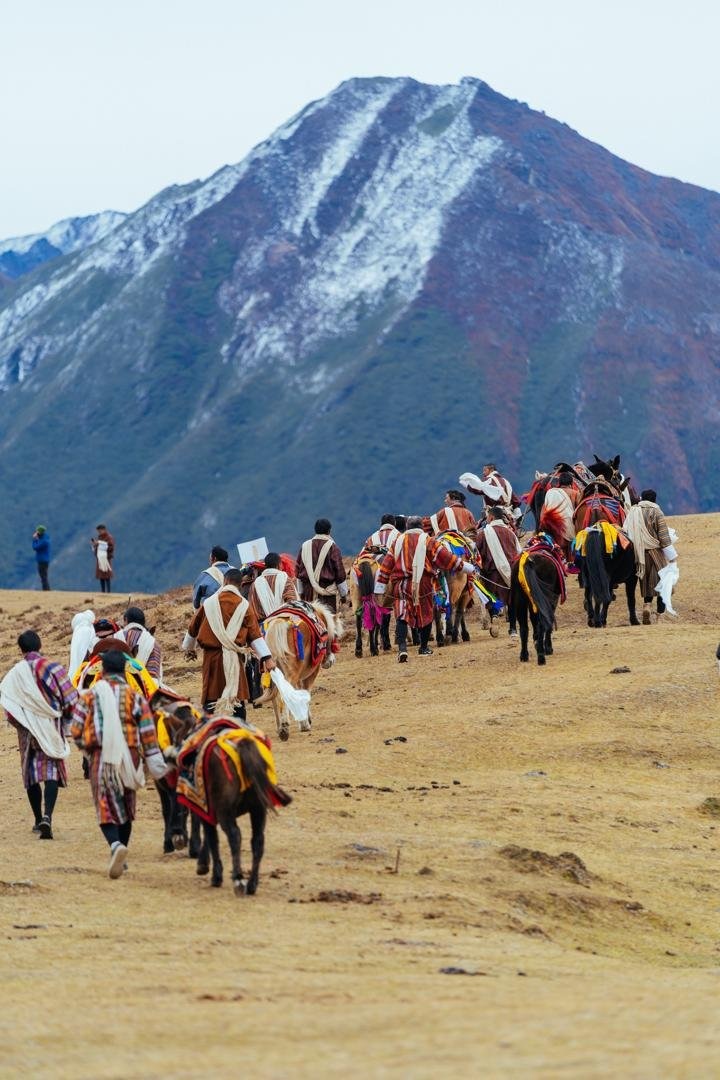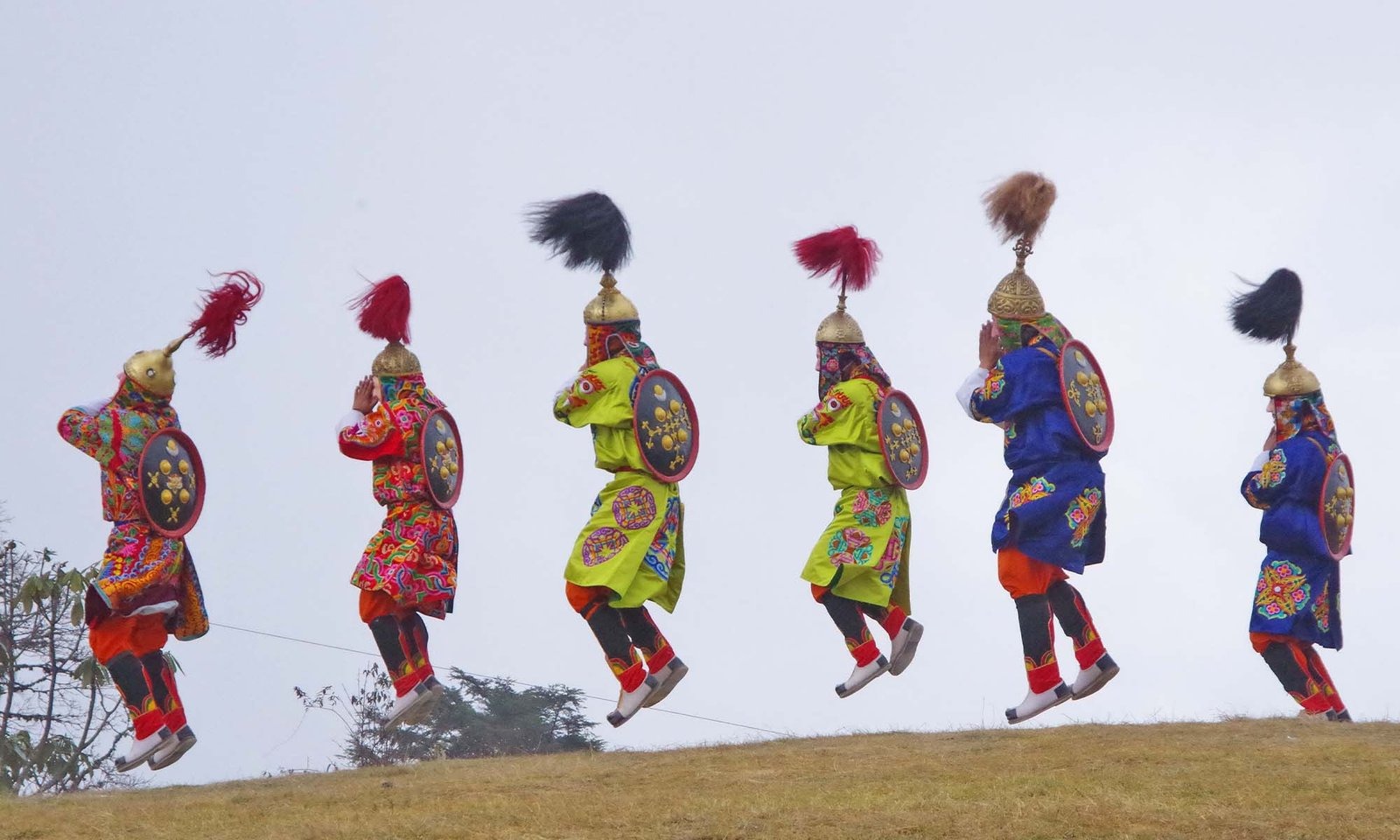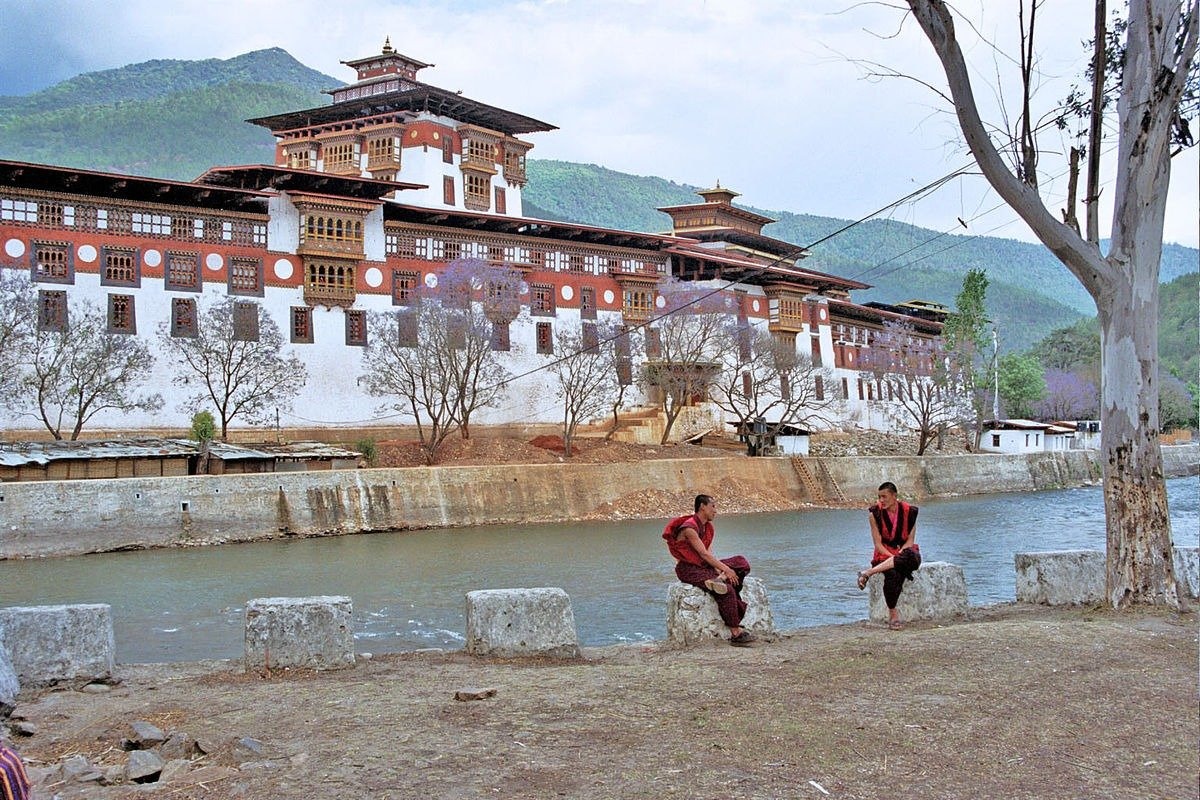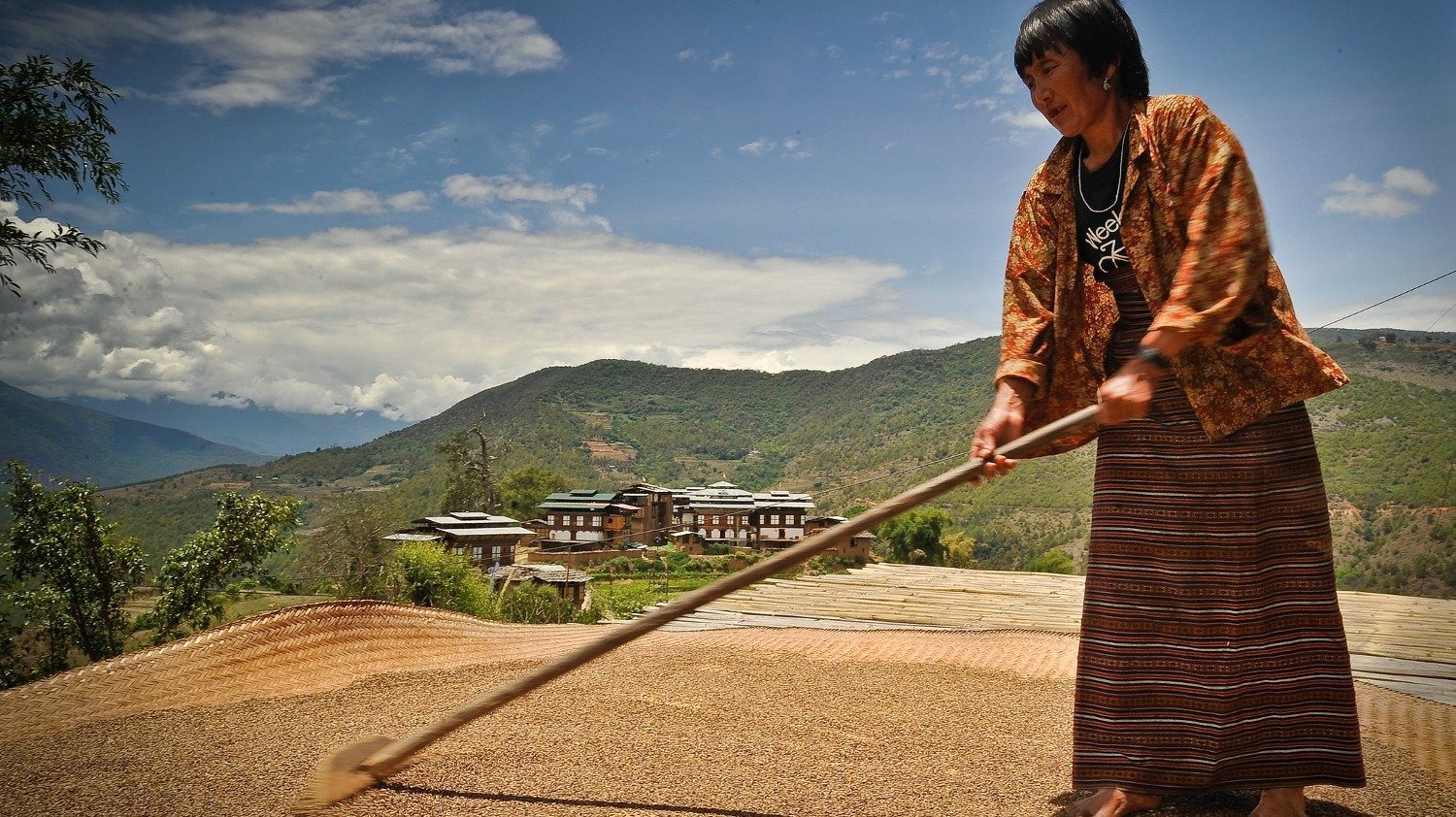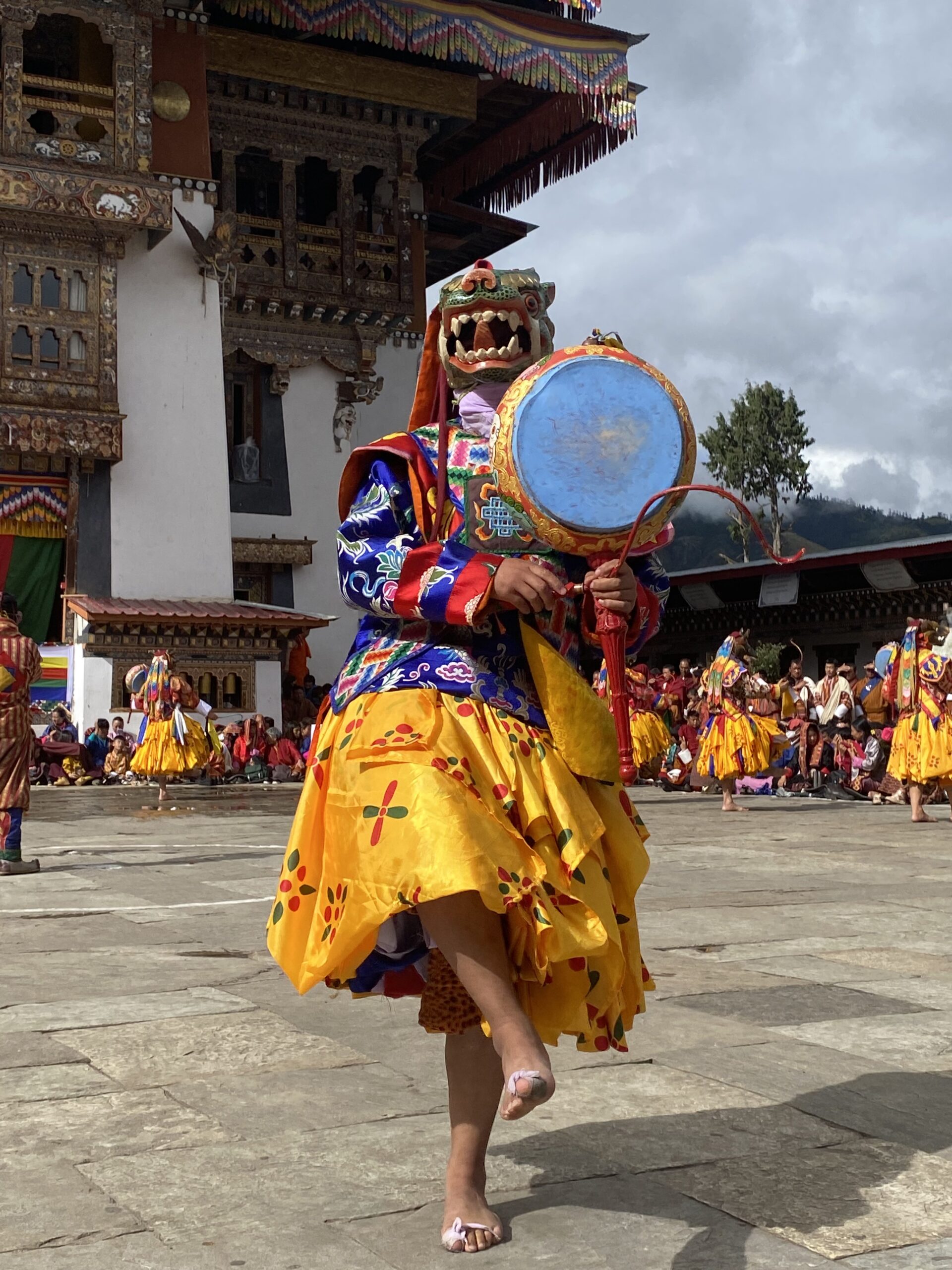
Bhutan Cultural Tours
Attractive Destinations
4.9
Divine Mad Monk and Temple of Fertility of Bhutan
Tour of the Modern and Medieval Bhutan
Happiness Bhutan Tour
Paro Tshechu [29th March -2nd April 2026
Bumdra Trek with Glamping
Royal Highland Festival
Druk Wangyel Tshechu [13th December 2025]
Punakha Tshechu [13th -14th April 2026]
Discover Gross National Happiness on the Bhutan Tour
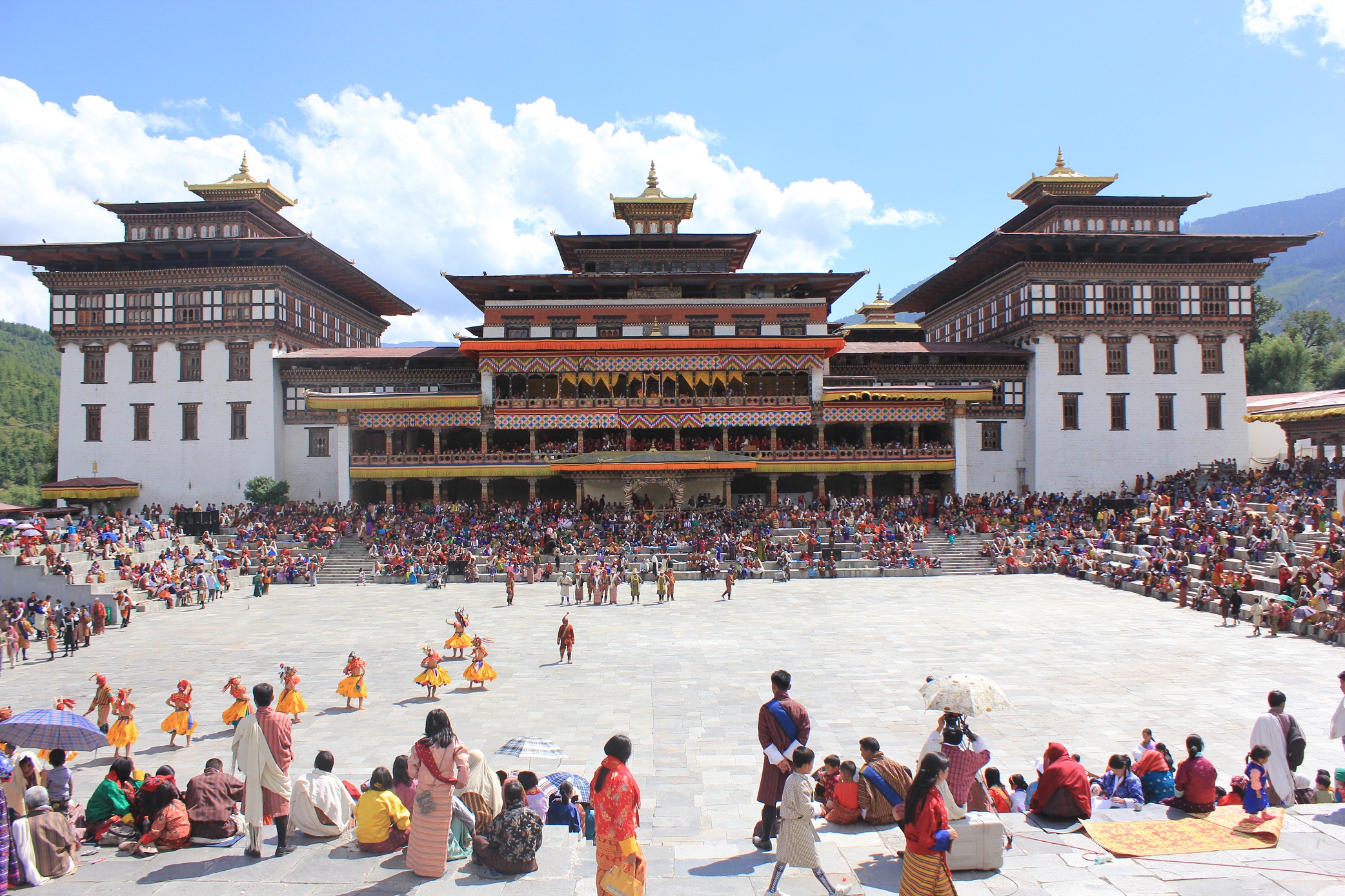
 Attractive Destinations
Attractive Destinations
About Bhutan Cultural Tours
Discover the True Essence of Bhutan Cultural Tours
Bhutan is the Land of the Thunder Dragon, a peaceful paradise nestled in the heart of the Himalayas. Well-known for deep-rooted traditions, exceptional cultural practices, and breathtaking landscapes, Bhutan offers a pleasurable experience for travellers seeking to immerse in a world untouched by modernity. That’s why Thunphel Bhutan Travels offers Bhutanese culture and tradition tours to explore the country’s fascinating customs, ancient monasteries, festivities, and way of life that prioritizes happiness and sustainability.
Bhutan’s Cultural and Spiritual Significance
Bhutan’s culture is deeply connected with Buddhism which has shaped their traditions, architecture, and way of life for centuries. Our Bhutan cultural tours allow you to witness the country’s spiritual essence in sacred monasteries, prayer wheels, and the rhythmic chanting of monks. Their traditional Bhutanese culture remains largely unchanged with the preservation of customs that date back centuries. The Bhutanese government emphasizes cultural preservation through policies that uphold traditional dress codes, architectural designs, and religious practices.
Architectural Wonders and Historical Landmarks
The most captivating aspect of Bhutan’s heritage is its stunning architecture. From fortress-like Dzongs to ancient temples and traditional Bhutanese homes, the country allows you to experience distinct architectural style that reflects the rich history and deep spiritual beliefs. Some of the most notable architectural wonders that you can experience on Bhutan heritage tours include:
- Dzongs (Fortresses) -These imposing structures work like administrative and religious centers, combining spectacular grandeur with intricate artistry. Every Dzong has a unique history and is an integral part of Bhutan’s governance and spiritual lifestyle.
- Lhakhangs (Temples) -Scattered throughout the country, these sacred places of worship are home to ancient relics, exquisite murals, and statues of revered Buddhist figures.
- Traditional Bhutanese Houses – Built with wood, stone, and mud, Bhutanese homes have intricate wood carvings and colourful patterns that reflect the country’s artistic heritage.
Bhutanese Festivities – A Celebration of Tradition
Bhutan’s festivals are known as Tsechus. They are grand celebrations that bring communities together to celebrate their shared heritage. These festivals are held in different parts of the country and feature masked dances, religious performances, and cultural programs that depict historical and spiritual narratives. The most famous Tsechus takes place in the major Dzongs and monasteries, which attract locals and travelers who wish to witness Bhutanese culture at its finest.
These festivities offer much more than just entertainment as they carry deep spiritual significance. The masked dances, performed by monks and laypeople narrate stories from Buddhist mythology, ward off evil spirits, and bestow blessings upon attendees. The picturesque display of traditional attire, music, and rituals during these events offers an immersive cultural experience.
Bhutanese Attire and Traditional Dress
Bhutanese people are known for their traditional dress, which is an integral aspect of their cultural identity. The Gho (a knee-length robe for men) and Kira (an elegant ankle-length dress for women) are worn daily, especially in public offices, religious sites, and formal gatherings. These garments are made from intricately woven fabrics and often adorned with symbolic patterns that reflect the wearer’s social status and heritage.
The art of weaving is highly valued in Bhutanese culture with different regions specializing in unique weaving techniques. Handwoven textiles, especially those crafted from silk and cotton, are well-known as prized possessions and make for exquisite souvenirs.
Bhutanese Cuisine – A Flavorful Experience
Food is an essential aspect of Bhutanese culture as their food meals often reflect the country’s agrarian lifestyle. Bhutanese cuisine is known for simplicity and bold flavors and Ema Datshi (a spicy dish made with chili and cheese) is the national dish. Other traditional dishes you can try out include Phaksha Paa (pork with red chilies), Jasha Maru (spicy chicken stew), and Momo (dumplings filled with meat or cheese).
Another significant Bhutanese cuisine is Ara, a locally brewed alcoholic beverage made from rice, wheat, or corn. Their traditional hospitality is deeply ingrained in Bhutanese society, and sharing meals with locals allows you to learn deeply about their way of life.
Bhutanese Arts and Crafts – The Legacy of Handicrafts
Bhutan has a rich tradition of arts and crafts, known as the Zorig Chusum, or the Thirteen Traditional Arts. Their traditional arts include painting, sculpture, wood carving, weaving, embroidery, and more. Bhutanese artisans follow age-old techniques which have been passed down through generations and create beautiful pieces of art that reflect Buddhist themes and cultural motifs.
Travelers can explore art schools, monasteries, and local craft markets and see how artisans showcase their skills in making intricate Thangka paintings, handwoven textiles, and beautifully carved wooden objects. These handicrafts are meaningful souvenirs and contribute to preserving Bhutan’s artistic heritage.
Spiritual Retreats and Monastic Lifestyle
If you are seeking spiritual rejuvenation, Bhutan’s peaceful monasteries and meditation retreats provide the perfect setting. Buddhism has shaped Bhutanese life, and visitors can gain valuable insights into the monastic lifestyle by interacting with monks, taking part in meditation sessions, and learning about Buddhist teachings.
Some monasteries offer extended retreat programs that allow travelers to engage in meditation, mindfulness practices, and traditional rituals to deeply connect with Bhutan’s spiritual essence. The tranquil environment combined with the wisdom of Buddhist teachings, makes Bhutan a truly remarkable destination for those on a journey of self-discovery.
Bhutan’s Commitment to Cultural Preservation
Bhutan is known for its Gross National Happiness (GNH) philosophy, which prioritizes cultural preservation, environmental sustainability, and well-being over economic growth. This unique approach ensures that the country’s traditions remain intact and embrace sustainable development.
Bhutanese authorities have implemented policies to protect their heritage, following strict regulations on tourism, architectural conservation, and cultural education. That’s why Bhutan continues to be one of the few places around the world where ancient traditions thrive in harmony with modernity.
Why Choose Our Bhutan Cultural and Heritage Tours?
Our Bhutan cultural and heritage tours take a journey through cultural and heritage sites for a once-in-a-lifetime experience for those looking to explore an unspoiled land of rich traditions, vibrant festivals, and spiritual enlightenment. Whether it’s witnessing the grandeur of a Tsechu festival, admiring the intricate details of a centuries-old monastery, or engaging in a heartfelt conversation with a local artisan, our Bhutanese culture and tradition tours offer an authentic and immersive cultural experience unlike any other.
From the moment you enter Bhutan, you will feel welcomed by warm hospitality, breathtaking landscapes, and a cultural richness that leaves an indelible mark on your soul. On Bhutan heritage tours, you will feel like Bhutan is more than just a destination. This wonderful counter offers a close glimpse into a world where tradition and modernity coexist harmoniously.
Explore the heart and soul of Bhutan through culture, heritage, and traditions, and plan a journey that will transform your perspective on life forever through our Bhutan heritage tours.

